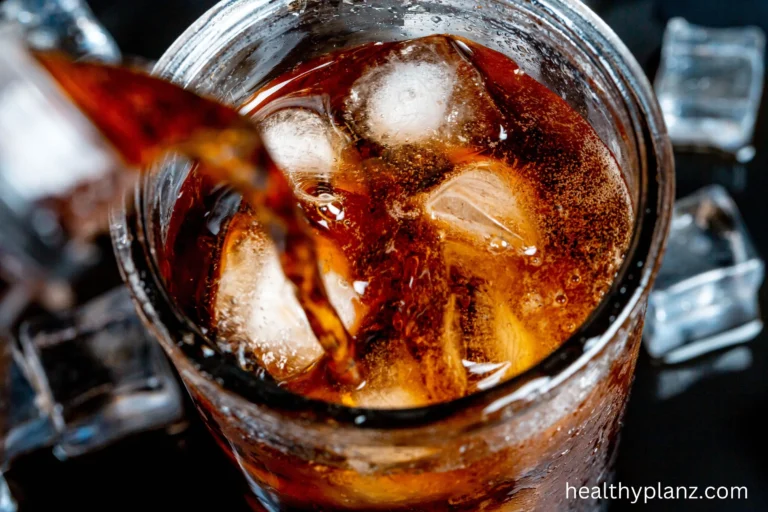Pepsi Nutrition Facts: Is This Popular Beverage Right for You?
Table of Contents
- Introduction
- What’s Inside Your Pepsi?
- Caloric Content and Sugar Levels
- Is Pepsi Healthy to Drink?
- Comparing Pepsi to Other Beverages
- How to Enjoy Pepsi Responsibly
- FAQs
- Conclusion
Introduction
Pepsi stands as one of the most recognizable and beloved beverages around the globe. But in a world that is growing increasingly health-conscious, many people are starting to question what lies behind that iconic label. In this blog post, we’ll dive into the Pepsi nutrition facts, shedding light on what exactly you’re ingesting with every sip and addressing the burning question: Is Pepsi healthy to drink?
What’s Inside Your Pepsi?
Pepsi, like most sodas, contains a mix of carbonated water, high fructose corn syrup (as its primary sweetener), caramel color, sugar, phosphoric acid, caffeine, citric acid, and natural flavors. Let’s break down these key ingredients and their impact:
- High-Fructose Corn Syrup: A common sweetener derived from corn starch. Studies suggest high intake could be linked to obesity and diabetes.
- Caramel Color: Used for coloring, it has been deemed safe in moderation, though some types suggest potential health risks.
- Phosphoric Acid: Adds a tangy taste and prevents the growth of mold and bacteria. Excessive consumption can lead to tooth enamel erosion and bone health issues.
- Caffeine: Known for its stimulating effects, excessive intake can lead to insomnia and increased heart rate.
Caloric Content and Sugar Levels
A critical part of the Pepsi nutrition facts is its caloric content. A 12-ounce can of Pepsi contains about 150 calories and 41 grams of sugar. This is equivalent to about 10 teaspoons of sugar, far above the American Heart Association’s recommended daily sugar intake of 9 teaspoons for men and 6 teaspoons for women.
Is Pepsi Healthy to Drink?
Given its high sugar and calorie count, regular consumption of Pepsi can contribute to weight gain, tooth decay, and an increased risk of chronic diseases such as type 2 diabetes and heart disease. While enjoying it occasionally won’t likely cause health issues, it’s essential to consume it in moderation.
Comparing Pepsi to Other Beverages
When weighing your beverage options, consider these alternatives:
- Water: is the healthiest choice, with zero calories or sugar.
- Unsweetened Tea or Coffee: Offers antioxidants with minimal calories, though be cautious of caffeine content.
- Diet Soda: is lower in calories and sugar but contains artificial sweeteners that some studies suggest may carry health risks.
- Fruit-infused water, or Sparkling Water: is a flavorful and healthier alternative to sodas.
How to Enjoy Pepsi Responsibly
For those who love Pepsi but want to maintain a healthy lifestyle, here are a few tips:
- Limit your intake. Keep it to occasional rather than daily consumption.
- Choose Smaller Sizes: Opt for a mini can or bottle to satisfy your craving with fewer calories and sugar.
- Stay Hydrated: Drink plenty of water throughout the day.
- Balance it Out: If you indulge in a Pepsi, consider cutting back on sugar elsewhere in your diet.
FAQs
Q: How much caffeine is in a can of Pepsi?
A: 12-ounce can of Pepsi contains about 38 mg of caffeine, roughly one-third to one-fourth the caffeine in a similar amount of coffee.
Q: Is Pepsi Zero Sugar a healthier option?
A: While it doesn’t contain sugar, concerns about artificial sweeteners persist. It may be a better option in terms of caloric and sugar content but should still be consumed in moderation.
Q: Can children drink Pepsi?
A: Due to its high sugar and caffeine content, it’s best to limit children’s consumption of Pepsi and opt for healthier beverage choices.
Conclusion
The Pepsi nutrition facts reveal it as a high-sugar, high-calorie beverage that, when consumed in excess, can lead to various health issues. While an occasional can of Pepsi can fit into a balanced diet, it’s essential to consume it responsibly and explore healthier alternatives. Understanding the contents of what you drink allows for informed choices, contributing to a healthier lifestyle.
Resources: https://www.nutritionix.com/de/food/pepsi






